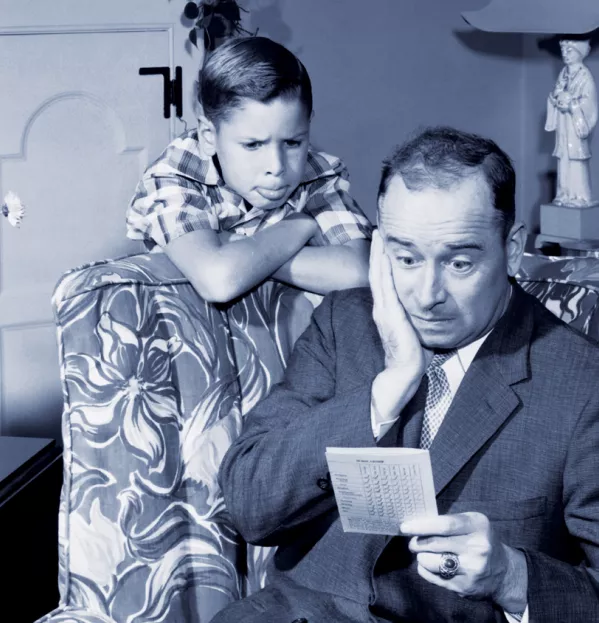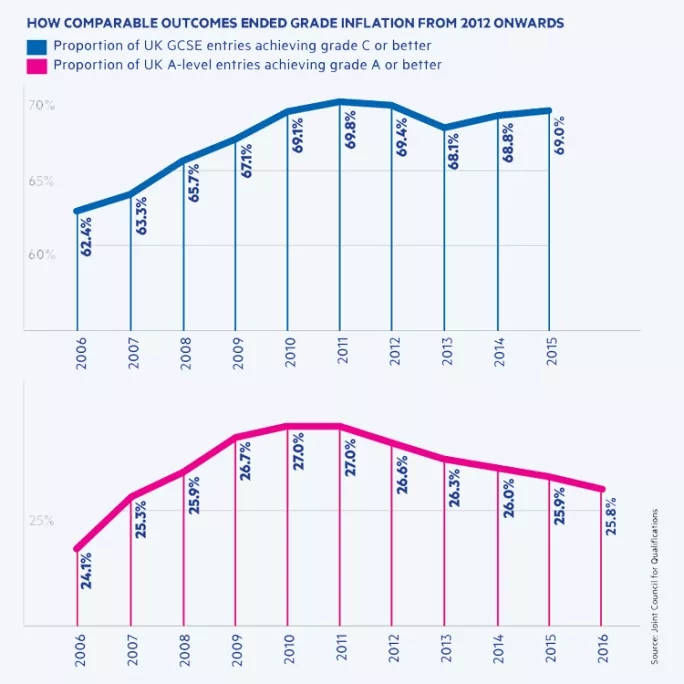Why GCSE exam results may never climb again

The future of a new pupil performance test - which could have ended the effective national freeze on significant increases in exam grades - is in the balance, TES can reveal.
Exams regulator Ofqual is poised to announce whether a new “national reference test” (NRT) - which could be used as a justification for allowing major rises in GCSE grades to begin again - will go ahead from next year.
But TES has spoken to expert advisers to Ofqual, who have raised serious technical problems with the NRT. One adviser has even predicted that it will be dropped.
And exam boards are understood to be split over whether the project should continue. Ofqual’s decision will be crucial for schools because an NRT that works as planned could mean an end to the strict statistical limits on national rises in GCSE grades, making it easier to hit government targets.
The regulator announced in 2014 that the new NRT would be introduced across England in 2017. But after a trial by 300 schools in March, it is now deciding whether or not it should go ahead - and it is said to be “increasingly non-committal” about using the test to help set GCSE grade boundaries.
Under pressure

The impact of the current statistical system of grading known as “comparable outcomes” was emphasised again yesterday as the percentage of A-level entries achieving an A grade or better fell for the fifth consecutive year.
But experts are concerned that the NRT will not work in its current form. “I would not be surprised if the national reference test is dropped,” Rebecca Allen, director of research group Education Datalab and a member of Ofqual’s standards advisory group, told TES.
“Many are concerned that it is not going to be able to do the job it’s designed to do. Students and teachers will become familiar with the new curriculum and question styles, and as a result it will have mark inflation.”
An unfair measure
Robert Coe, professor of education at Durham University and a fellow member of the Ofqual standards advisory group, said that he supported the NRT in principle but that Ofqual’s design of the test would not allow it to be a fair long-term measure of pupils’ performance.
He said it was important that the reference test was “close enough” to the GCSE in terms of the learning and content “but you also want something that’s not going to change”. Ofqual “wanted it to be like the specification for the GCSE”, he said. “But you have to have something more future proof. If you link them [the reference test and GCSEs] too closely, you get the familiarity effect.”
At least one exam board believes that using the reference test to help set GCSE standards would be so risky that the controversial system of comparable outcomes (see box, right), which brought an end to more than two decades of continuous grade rises, should be kept in place unchanged until a better alternative could be found.
But another board is supportive of the NRT, with a source saying: “It’s going to be one more bit of useful data. Let’s not kick it before we see what it can do.”
One exam board is in the early stages of researching alternatives to the NRT. But these are several years away from being ready for use - raising the very real prospect of exam grades being held at a constant level for several more years.
Without the test, there would be no independent means of showing that results should go up from one year to the next.
An exam board source said that they had “fundamental objections” to the NRT because without “magic”, they could not see how it would be statistically reliable.
“The system we have at the moment is the least worst option because it does enshrine a version of fairness,” the source said.
“It’s not all awful but it has one bad consequence: it doesn’t allow recognition of improved performance in a system that requires schools to show improved performance. But until we find a better way, we mess with it at our peril.”
The source said that work on the NRT had been introduced so that “it looked like something was being done to address the concerns about comparable outcomes” because of the “unhappiness” it caused teachers.
“That is sustainable until the point when people realise the reference test isn’t going to fix it,” the source added.
An Ofqual spokesman said that the regulator recognised the “familiarity effect” that “can be encountered when any new test is introduced”. He added: “We will be announcing our next steps in relation to the national reference test in due course.”
You need a Tes subscription to read this article
Subscribe now to read this article and get other subscriber-only content:
- Unlimited access to all Tes magazine content
- Exclusive subscriber-only stories
- Award-winning email newsletters
Already a subscriber? Log in
You need a subscription to read this article
Subscribe now to read this article and get other subscriber-only content, including:
- Unlimited access to all Tes magazine content
- Exclusive subscriber-only stories
- Award-winning email newsletters